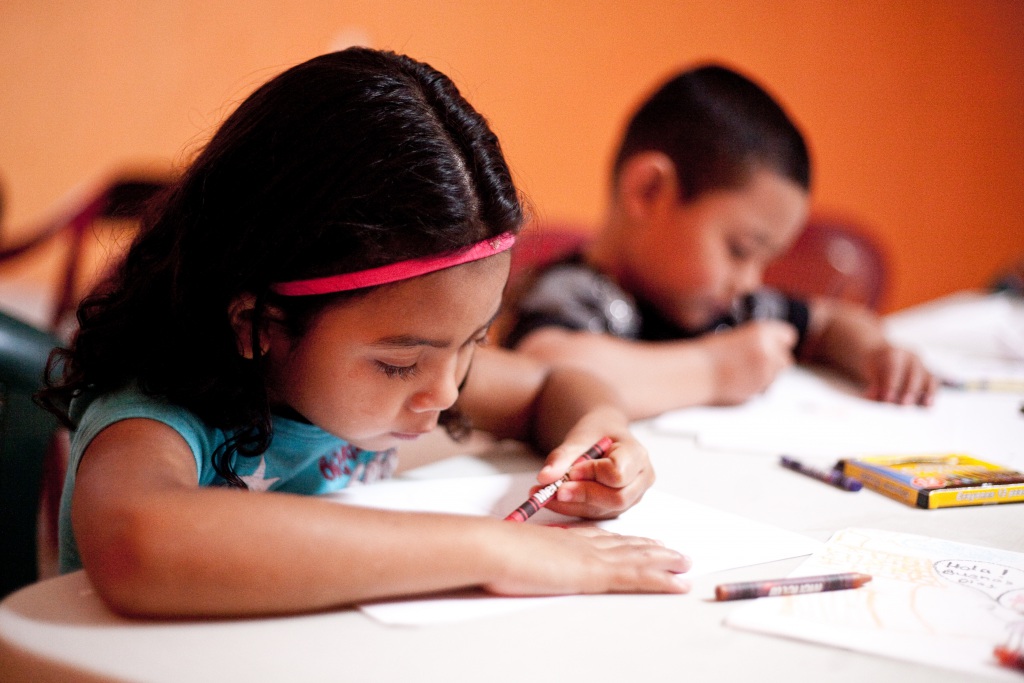
Costa Rica shows the way by providing pre-primary education for all children
Childcare, Early childhood development, Teachers and learning
The Central American nation is reinforcing the message that children under five need quality development and care to fulfil their potential.
Costa Rica has become a world leader when it comes to early childhood development – by making it compulsory for all young children to attend pre-primary education.
More and more countries are realising the benefit to their economies if they start educating the population in the early years.
There’s no more important time than during the first 1000 days of a child’s life – as their brains are developing faster than at any other age.
By five years old, a child’s brain is 90% developed. So stimulation during these tender years is crucial.
Theirworld’s #5for5 campaign raises awareness of early childhood development and puts pressure on world leaders to make sure all children under five have access to five key areas of quality care – nutrition, health, learning, play and protection.
We are also calling on all countries to provide two years of free, quality pre-primary education.
Costa Rica’s policy is in line with the global aim for all boys and girls to have access to quality early childhood development. It’s part of Target 4.2 of the Sustainable Development Goals to be achieved by 2030 – so that children are “ready for primary education”.
While richer countries have good direct learning facilities, many developing nations simply don’t have the same resources.
But their governments are realising that getting the foundations right in the early years leads to a more educated and developed population.
Early childhood development is now high on the global agenda and is beginning to receive more funding and attention than ever before, as governments take action to target education at their youngest citizens.
Costa Rica’s move to provide two years of pre-primary education was welcomed in January by Education International, the global federation that represents teachers and education staff.
It said: “In making this move to two years of compulsory pre-primary education, Costa Rica is stepping out ahead of many other countries in the world – as, before Costa Rica’s announcement, pre-primary education was compulsory for at least two years in only 11% of the world’s countries.

“Costa Rica’s policy change is also following other countries in its trend-setting region: Latin America and the Caribbean have the highest percentage of countries making two years of pre-primary education compulsory of any region in the world.”
Education International said the Central American nation is now working to ensure there are schools for their children to attend.
The move is also a reflection of the importance of early childhood education for stimulating learning in the long term and will help to iron out inequalities between those receiving support in early childhood development and those who are not.
The importance of the home environment for child development – through activities such as telling stories, singing, playing or drawing – was emphasised in a recent UNESCO Global Education Monitoring Report.
Organisations like the Costa Rican Humanitarian Foundation – a non-profit committed to developing creative and economical solutions to a wide range of social problems – are doing what they can to improve the start that children from low-income families get.
In Costa Rica, 68% of children benefitted from positive and stimulating home learning environments. This means, of course, that 32% do not. For these families, this shift in Costa Rica towards universal two-year pre-primary education could make a particular impact. World Education Blog
Based in the rural community of Santa Ana, the foundation works to improve the quality of life of the most vulnerable populations in Costa Rica.
Gail Nystrom from the foundation runs six family wellbeing centres. She told Their News: “Three are located in the lowest-income area of the country, one is on the border with Nicaragua, one is at the beach area and one is on the southern zone.
“We have found that the children thrive with just a small amount of attention and as a professional ECE (early childhood education) teacher, I understand full well the essential nature of reaching out to young children.
“I have been doing this work for more than 40 years and am not near to stopping yet.”
Dr Eva Lloyd – Professor of Early Childhood, Cass School of Education and Communities at the University of East London – agrees that a good start in life paves the way for a successful future.
She said: “Learning starts before we are born and keeps going. Children, especially in the early years are like little sponges, absorbing all the information around them and then actively making sense of it.”
Principal educational psychologist Mike Hughesman said it’s not the quantity but the quality of stimulation that counts. He added: “Learning and stimulation can be considered as part of the essential nourishment that the developing infant needs to enable the cognitive capacity of the brain to grow and remain healthy.
“The key issue is not the quantity of stimulation but the quality – cognitive learning is fundamentally interactive (the child is not a passive vessel for learning).
That extends to teachers too. The qualifications for primary teachers are higher in Costa Rica than in many other Latin American countries.
Teacher education there takes place in universities rather than secondary schools. Primary-teacher candidates must earn a high school diploma before gaining admission to the two-year normal school teacher education programme or to the School of Education at the University of Costa Rica.

More news

Take the test and discover how our Schools Hub helps students grasp the global education crisis
